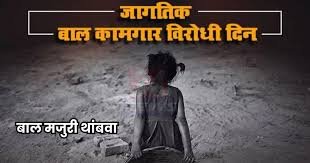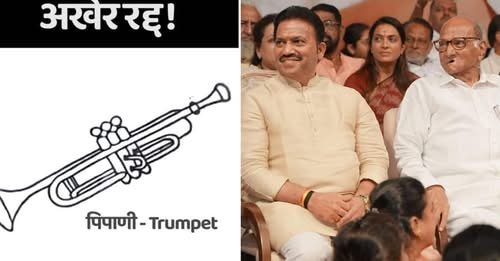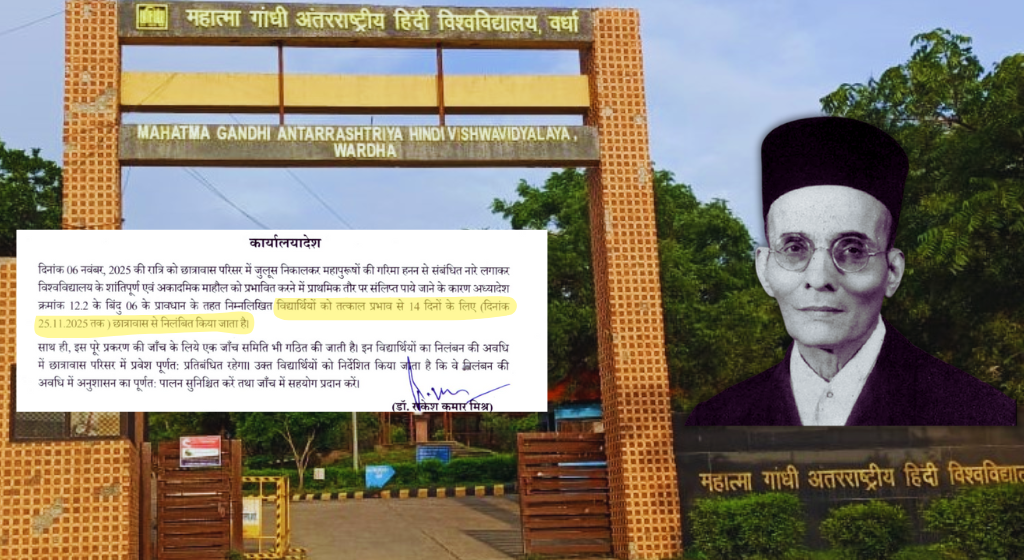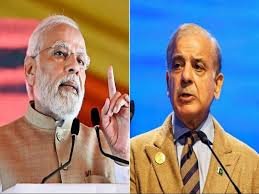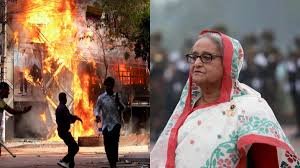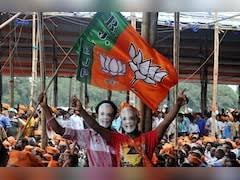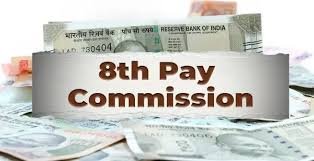
Union's fight for pensioners' rights: Will 59 lakh retired employees be excluded from the Eighth Pay Commission?
Central government approves the Terms of Reference of the Eighth Pay Commission; Will pensioners not get benefits? Employees' union writes to the Finance Minister
New Delhi, November 13, 2025: Although the Central government approved the Terms of Reference (TOR) of the Eighth Pay Commission on November 3, this decision has sparked a wave of discontent among lakhs of retired employees. According to government sources, about 59 lakh central government pensioners are likely to be deprived of the benefits of this commission. In this matter, employee unions like the All India Defence Employees Federation (AIDEF) have written a letter to Finance Minister Nirmala Sitharaman, demanding immediate intervention. In this letter, the organization has clearly stated that it is unfair that employees who have retired after serving the country for a long time and employees who will retire soon are being excluded from the benefits of this commission.
Let's go back a little to understand the background of this decision. The Pay Commission is set up every ten years to review the pay, allowances and pensions of central government employees and retired employees. The Seventh Pay Commission came into effect in 2016, which made clear provisions not only for active employees, but also for the pension of retired employees. However, the controversy has started as there is no clear provision in the TOR of the Eighth Pay Commission regarding the inclusion of pensioners. This decision has been taken by a three-member committee headed by Justice Ranjan Desai, and it is being said that the main objective of this committee is to review the pay and allowances of active central government employees only. As per the TOR, who will get the benefits of this commission? There is clarity on this. Industrial and non-industrial employees of the central government, All India Service officers, jawans and officers of the defence forces, employees of Union Territories, officers of the Indian Accounts and Audit Department, employees of the Supreme Court and High Courts, judicial officers of Union Territories and members of regulatory bodies constituted under parliamentary acts (except RBI). However, this list does not mention retired employees or family pensioners. According to government data, there are about 69 lakh central and family pensioners across the country, of which 59 lakh are likely to be affected by the benefits of this commission. This number is not just a statistic, but a matter of future security for lakhs of families.
The reactions of the employee unions have been very strong. AIDEF wrote in a letter, "It is unfair to exclude employees who have served the country for a long time and have retired or are about to retire, from the TOR of the Eighth Pay Commission. Pension review is a fundamental right of retired employees and it is unfortunate to keep them away from this process." The union further pointed out that the TOR of the Seventh Pay Commission had a clear provision for pension review, which has now been removed. This decision has not only created fear among retired employees, but also among active employees. Because, today's employees will retire tomorrow, and if their pension is not secure, who will be left to serve?
The background to this dispute is political and economic. Some analysts say that the central government may have found it difficult to give priority to pensioners due to the economic crisis. However, employee leaders say that these decisions are being taken lightly, which will dampen the enthusiasm of government employees. The country's leading employee unions such as the National Federation of Indian Railway Men (NFIR) and the Indian National Defence Workers Federation (INDWF) have also supported the letter. They say, "Pension is not just financial assistance, but also the dignity of those who have served for a long time. The government should immediately amend the TOR." These unions have also threatened to protest and are likely to take out a big march in Delhi next week.
The matter could have wide-ranging implications for the government machinery. On the one hand, expectations of a pay hike for active employees have increased. According to the TOR, the commission's report is likely to be submitted by the end of 2026, after which the salaries will be implemented from 2027. This will provide relief to crores of employees from inflation. However, on the other hand, the discontent of pensioners may affect government services. Retired employees are experienced mentors, and if their rights are not protected, it will have a negative impact on the new generation. Also, this decision is a wake-up call for state government employees as many states follow the policies of the Centre.
There is no official reaction from the Finance Ministry yet. However, according to sources, the government is considering setting up a separate committee for pensioners. Be it the president of AIDEF or leaders of other organizations, everyone is preparing to come together and fight. This issue is not limited to the Pay Commission alone, it has become a matter of balancing the rights and duties of government employees. It will be interesting to see what the government's stance will be on this decision, which is linked to the future of lakhs of families.
Leaders of employee organizations have appealed to all pensioners to come together and fight this fight. "You served the country, now fight for your rights too
Central government approves the Terms of Reference of the Eighth Pay Commission; Will pensioners not get benefits? Employees' union writes to the Finance Minister
New Delhi, November 13, 2025: Although the Central government approved the Terms of Reference (TOR) of the Eighth Pay Commission on November 3, this decision has sparked a wave of discontent among lakhs of retired employees. According to government sources, about 59 lakh central government pensioners are likely to be deprived of the benefits of this commission. In this matter, employee unions like the All India Defence Employees Federation (AIDEF) have written a letter to Finance Minister Nirmala Sitharaman, demanding immediate intervention. In this letter, the organization has clearly stated that it is unfair that employees who have retired after serving the country for a long time and employees who will retire soon are being excluded from the benefits of this commission.
Let's go back a little to understand the background of this decision. The Pay Commission is set up every ten years to review the pay, allowances and pensions of central government employees and retired employees. The Seventh Pay Commission came into effect in 2016, which made clear provisions not only for active employees, but also for the pension of retired employees. However, the controversy has started as there is no clear provision in the TOR of the Eighth Pay Commission regarding the inclusion of pensioners. This decision has been taken by a three-member committee headed by Justice Ranjan Desai, and it is being said that the main objective of this committee is to review the pay and allowances of active central government employees only. As per the TOR, who will get the benefits of this commission? There is clarity on this. Industrial and non-industrial employees of the central government, All India Service officers, jawans and officers of the defence forces, employees of Union Territories, officers of the Indian Accounts and Audit Department, employees of the Supreme Court and High Courts, judicial officers of Union Territories and members of regulatory bodies constituted under parliamentary acts (except RBI). However, this list does not mention retired employees or family pensioners. According to government data, there are about 69 lakh central and family pensioners across the country, of which 59 lakh are likely to be affected by the benefits of this commission. This number is not just a statistic, but a matter of future security for lakhs of families.
The reactions of the employee unions have been very strong. AIDEF wrote in a letter, "It is unfair to exclude employees who have served the country for a long time and have retired or are about to retire, from the TOR of the Eighth Pay Commission. Pension review is a fundamental right of retired employees and it is unfortunate to keep them away from this process." The union further pointed out that the TOR of the Seventh Pay Commission had a clear provision for pension review, which has now been removed. This decision has not only created fear among retired employees, but also among active employees. Because, today's employees will retire tomorrow, and if their pension is not secure, who will be left to serve?
The background to this dispute is political and economic. Some analysts say that the central government may have found it difficult to give priority to pensioners due to the economic crisis. However, employee leaders say that these decisions are being taken lightly, which will dampen the enthusiasm of government employees. The country's leading employee unions such as the National Federation of Indian Railway Men (NFIR) and the Indian National Defence Workers Federation (INDWF) have also supported the letter. They say, "Pension is not just financial assistance, but also the dignity of those who have served for a long time. The government should immediately amend the TOR." These unions have also threatened to protest and are likely to take out a big march in Delhi next week.
The matter could have wide-ranging implications for the government machinery. On the one hand, expectations of a pay hike for active employees have increased. According to the TOR, the commission's report is likely to be submitted by the end of 2026, after which the salaries will be implemented from 2027. This will provide relief to crores of employees from inflation. However, on the other hand, the discontent of pensioners may affect government services. Retired employees are experienced mentors, and if their rights are not protected, it will have a negative impact on the new generation. Also, this decision is a wake-up call for state government employees as many states follow the policies of the Centre.
There is no official reaction from the Finance Ministry yet. However, according to sources, the government is considering setting up a separate committee for pensioners. Be it the president of AIDEF or leaders of other organizations, everyone is preparing to come together and fight. This issue is not limited to the Pay Commission alone, it has become a matter of balancing the rights and duties of government employees. It will be interesting to see what the government's stance will be on this decision, which is linked to the future of lakhs of families.
Leaders of employee organizations have appealed to all pensioners to come together and fight this fight. "You served the country, now fight for your rights too
New Delhi, November 13, 2025: Although the Central government approved the Terms of Reference (TOR) of the Eighth Pay Commission on November 3, this decision has sparked a wave of discontent among lakhs of retired employees. According to government sources, about 59 lakh central government pensioners are likely to be deprived of the benefits of this commission. In this matter, employee unions like the All India Defence Employees Federation (AIDEF) have written a letter to Finance Minister Nirmala Sitharaman, demanding immediate intervention. In this letter, the organization has clearly stated that it is unfair that employees who have retired after serving the country for a long time and employees who will retire soon are being excluded from the benefits of this commission.
Let's go back a little to understand the background of this decision. The Pay Commission is set up every ten years to review the pay, allowances and pensions of central government employees and retired employees. The Seventh Pay Commission came into effect in 2016, which made clear provisions not only for active employees, but also for the pension of retired employees. However, the controversy has started as there is no clear provision in the TOR of the Eighth Pay Commission regarding the inclusion of pensioners. This decision has been taken by a three-member committee headed by Justice Ranjan Desai, and it is being said that the main objective of this committee is to review the pay and allowances of active central government employees only. As per the TOR, who will get the benefits of this commission? There is clarity on this. Industrial and non-industrial employees of the central government, All India Service officers, jawans and officers of the defence forces, employees of Union Territories, officers of the Indian Accounts and Audit Department, employees of the Supreme Court and High Courts, judicial officers of Union Territories and members of regulatory bodies constituted under parliamentary acts (except RBI). However, this list does not mention retired employees or family pensioners. According to government data, there are about 69 lakh central and family pensioners across the country, of which 59 lakh are likely to be affected by the benefits of this commission. This number is not just a statistic, but a matter of future security for lakhs of families.
The reactions of the employee unions have been very strong. AIDEF wrote in a letter, "It is unfair to exclude employees who have served the country for a long time and have retired or are about to retire, from the TOR of the Eighth Pay Commission. Pension review is a fundamental right of retired employees and it is unfortunate to keep them away from this process." The union further pointed out that the TOR of the Seventh Pay Commission had a clear provision for pension review, which has now been removed. This decision has not only created fear among retired employees, but also among active employees. Because, today's employees will retire tomorrow, and if their pension is not secure, who will be left to serve?
The background to this dispute is political and economic. Some analysts say that the central government may have found it difficult to give priority to pensioners due to the economic crisis. However, employee leaders say that these decisions are being taken lightly, which will dampen the enthusiasm of government employees. The country's leading employee unions such as the National Federation of Indian Railway Men (NFIR) and the Indian National Defence Workers Federation (INDWF) have also supported the letter. They say, "Pension is not just financial assistance, but also the dignity of those who have served for a long time. The government should immediately amend the TOR." These unions have also threatened to protest and are likely to take out a big march in Delhi next week.
The matter could have wide-ranging implications for the government machinery. On the one hand, expectations of a pay hike for active employees have increased. According to the TOR, the commission's report is likely to be submitted by the end of 2026, after which the salaries will be implemented from 2027. This will provide relief to crores of employees from inflation. However, on the other hand, the discontent of pensioners may affect government services. Retired employees are experienced mentors, and if their rights are not protected, it will have a negative impact on the new generation. Also, this decision is a wake-up call for state government employees as many states follow the policies of the Centre.
There is no official reaction from the Finance Ministry yet. However, according to sources, the government is considering setting up a separate committee for pensioners. Be it the president of AIDEF or leaders of other organizations, everyone is preparing to come together and fight. This issue is not limited to the Pay Commission alone, it has become a matter of balancing the rights and duties of government employees. It will be interesting to see what the government's stance will be on this decision, which is linked to the future of lakhs of families.
Leaders of employee organizations have appealed to all pensioners to come together and fight this fight. "You served the country, now fight for your rights too

.jpg)






